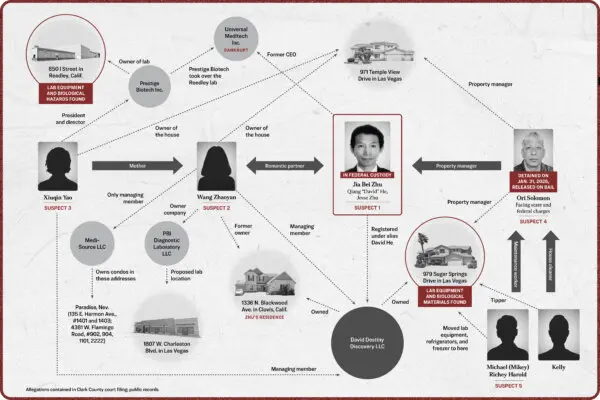It could happen on any given weeknight: While you are enjoying dinner with your family, your teenage daughter suddenly announces that she was born in the wrong body, that you have to start calling her by a male name, and that she wants to start taking cross-sex hormones. And she’s serious about it.
What do you do next?
“It’s very important for the parents to not react in a way that is terribly negative or terribly judgmental, even if they may be feeling at the moment that this is just madness, and this doesn’t make any sense,” advised Dr. Miriam Grossman, a psychiatrist and the author of five books. In her 2009 book “You’re Teaching My Child WHAT?” she warned parents about how sex education has evolved to promote sexual freedom and gender confusion. In her latest book from 2023, “Lost in Trans Nation: A Child Psychiatrist’s Guide Out of the Madness,” she wrote about the damage that the so-called “gender-affirming care” is inflicting on our youth.
Although there’s no one-size-fits-all guide to navigating this scenario, there are some main points to consider.
The Basics
First of all, you know for a fact that your daughter is female, or that your son is male, and that can’t be changed. You are right. Your child is deeply confused and probably brainwashed. You know you must be there for him or her, to bring them back to reality.
It’s important to note that gender dysphoria does exist and has been diagnosed for decades, but it’s extremely rare, occurring in adults at a rate of between 2 and 14 per 100,000 people (between 0.002 and 0.014 percent). In the case of minors, it is so rare that the information is scant and not reliable.
The current wave of young people claiming they were born in the wrong body is a different phenomenon, mostly ideologically and socially constructed. The vast majority of these children are influenced by social media, their school or college, their friends, or a combination of all of the above.
A study on adolescent gender dysphoria found that more than 86 percent of parents reported that their child started to identify as a different gender after binging on social media, having one or multiple friends come out as trans in quick succession, or both.
External influences aren’t the only factors. “These kids are generally those who are vulnerable,“ Dr. Grossman explained. ”They probably have other disorders. A lot of them are on the autism spectrum, they might have anxiety or depression, they may have gone through some difficult trauma, [and] they may have been molested, or abused.”










